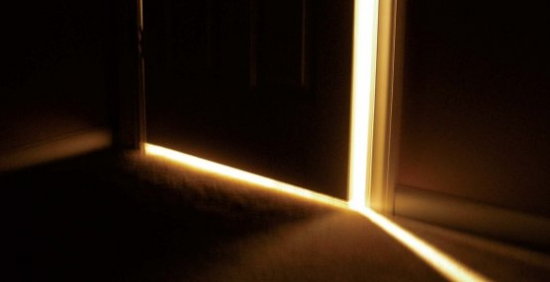
According to the Bible and to tradition, Elijah the Prophet never died as we mortals do, but was carried to heaven in a fiery chariot, there to prepare for the Messianic era when the legendary fight between the Behemoth and the Leviathan would take place and in due time would herald his arrival with great trumpeting and loud proclamations. However, like many of us, Elijah was impatient for the coming of this time of general perfection when the joyful declaration would be made throughout the world. Consequently he liked to visit various communities at infrequent intervals in order to assess their current state of affairs, as well as to offer protection to the poor and feeble amongst them. He is believed to have done so disguised as a beggar or some other lowly member of society so as not to attract too much attention and (like the difficulty of making quantum-measurements) arrange it so as not to directly influence the outcome. By tradition, his presence is always imminent. Therefore, anticipation of his welcome return is expressed by setting a special chair aside for him in synagogues and at circumcision ceremonies. Also, during the Passover Seder service in the home, when in theory we drink four goblets of wine, a large silver goblet is thoughtfully provided for Elijah too. Then, during the pouring of the final goblet, known as the “Cup of Elijah”, it is filled for his specific use.
The following events occurred not long after the end of the Second World War when I was still a child. At that time it became apparent that with three children our parents needed to move into a bigger house than the two-bedroom house they had previously owned. The large old house that we bought was late Victorian in style and it even had servants' quarters. It was bomb-damaged, which is why my father could afford it, but being a civil engineer he understood that there was no danger; only one wall was slightly curved with a few superficial cracks. The garden was large and had many fruit trees which were a blessing we enjoyed, as well as an ancient-looking vine that grew in an old fashioned wood-framed glasshouse. However, this vine never gave us any grapes, and my father, not satisfied, thought he could do something to improve it.
Another reason for deciding to live in such a large house was that my mother could then take in students as lodgers. This was her way of contributing to our family income. She enjoyed doing this and it was patterned on what her mother also used to do. So for many years we supplied this service which met a community need for kosher accommodation. In that time of austerity, it was not easy for the Jewish students coming from other towns throughout England (and even from abroad) to find suitable places to stay closer to the center of the city where they could commute daily to London colleges or universities. At Passover time they mostly returned to their parents’ homes although they were welcome to remain with us during the festivals and sometimes they did so.
One fine Pesach eve we were celebrating the festival as usual, with guests, most of whom were family members or students, in order to at least partly welcome “all who are hungered — let them come and eat, all who are needy — let them celebrate the Passover”; an attitude to the festival taken directly from our Haggadah prayerbook. Being somewhat older children, we were allowed to stay up late to enjoy the counting songs and hymns in the later part of the Seder, which comes after the main meal. Wearing our best clothes, we all sat round a large oval table in the dining-room of that grand old house and my father read the Seder service, partly in English so that we could better understand it.
For me, the most dramatic part of the Seder occurs at the moment when the front door to the street is opened, which traditionally invites the non-Jewish world to see that no Christian blood is being used nor any Host being pierced etc, and by implication, that all are invited to participate. When the door is opened, the Prophet Elijah is expected to arrive and the person who opens the door is expected to welcome him with the Hebrew words, "Baruch Haba" . The high state of drama arises from the fact that a few seconds later, exactly at the moment when Elijah’s cup of wine is being poured, the famous corresponding prayer, “Pour out thy wrath against the heathen that have not known You, etc.” is recited, the air virtually sizzling with tension and concern that this demanded action may be interpreted by anyone as a provocation by the Jews.
On that memorable Seder night, just as my father indicated that it was time to open the front door, the doorbell actually rang! But when the door was opened there was no one at all outside, no Prophet, no angry lynch-mob, nothing. So it is doubtful if the traditional greeting was actually spoken. A moment later the doorbell rang again and after a pause, third time. Could Elijah be playing some kind of a joke on us? Gradually we came to realize that the sound must be coming from the back door or tradesmen’s entrance at the side of the house in an alley which also led through to the garden. Somebody went out to open the back door and there, sure enough, was Eliahu, dressed as a stable-boy with a large sack that was dripping some kind of foul-smelling yellow liquid. “I brought the moock!” was all he said, the “u” being replaced in a strong Liverpudlian accent.
What had actually happened was that my father had decided how he might improve the condition of the vine. He had visited the local riding stables and had arranged for the supply of some of this most useful gardening material, without specifying the time for its delivery. One of us showed the youth where to leave the horse manure and after some delay order was restored and we continued with the Seder service to its end.
However, whenever I recall and reflect on this event, it seems to me that actually it was very unreasonable for Elijah to disguise himself to such an exaggerated degree. Couldn’t he at least have shown us a small amount of respect or consideration? For on that occasion nobody felt like inviting him in to our Passover feast, nor was there any attempt to supply him with a drink; not even plain water from an ordinary glass. So I am sorry to have to report that Elijah must have decided that it was still too soon to warn the Messiah about it being time to get ready, and that the Jews would just have to wait around for a considerably longer period of time. Indeed, but for this unfortunate incident, the righteous amongst us might now be enjoying their Leviathan steaks from plates of gold. And, incidentally, we never even got any grapes.
 LEV-RAN SCHOOL: A LOVE STORY (new)
LEV-RAN SCHOOL: A LOVE STORY (new)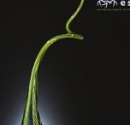 DEAR EDITOR 154
DEAR EDITOR 154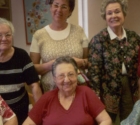 KNITTING CLUBS: TEL AVIV'S KNITTING & CROCHET SOCIAL CIRCLE
KNITTING CLUBS: TEL AVIV'S KNITTING & CROCHET SOCIAL CIRCLE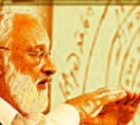 Kabbalah For All
Kabbalah For All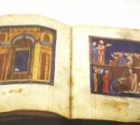 Haggadot
Haggadot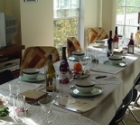 Passover 5767 ...The Holiday of Freedom
Passover 5767 ...The Holiday of Freedom David Chester
David Chester